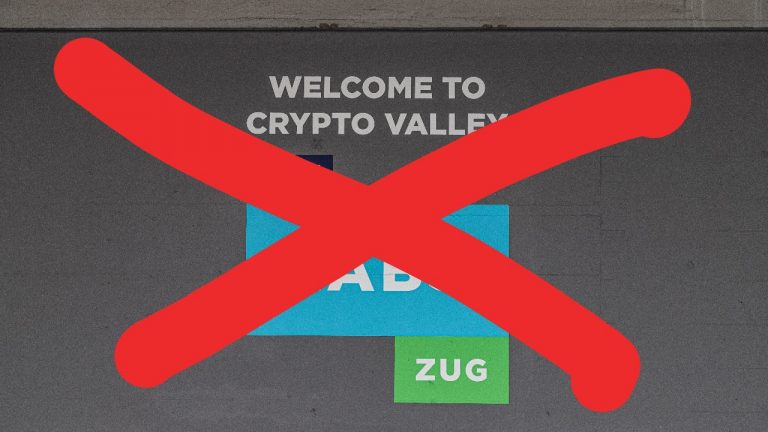
Switzerland’s “crypto valley” is asking the government for 100 million Swiss francs ($102.7 million) in funding, local media reported.
The once flourishing Swiss cryptocurrency industry is struggling to survive following the withdrawal of private equity investors.
About 80% of 203 firms surveyed by the Swiss Blockchain Federation recently warned of imminent bankruptcy. Only half of the 50 biggest companies in crypto valley expect to last a year in business.
Now, the industry is turning to government, requesting for a fund that is expected to draw on federal guarantees, local government and private investments, according to Zug finance director Heinz Taennler.
The celebrated blockchain hub is located in Zug and other towns of Switzerland and Liechtenstein.
Taennler noted that the 154 million francs credit facility for startups recently announced by the Swiss government will not be enough for the cryptocurrency sector’s ambitious financing needs. He wants a separate, dedicated fund for Zug companies.
While start-ups are generally threatened by the Covid-19 impact, “crypto valley”’s loss of venture capital constitutes an underlying condition.
A mid-2019 analysis of the 50 top companies valued them at $40 billion, which was two times their value at the beginning of the year. The report also listed six unicorns. As a whole, the “crypto valley” had more than 800 companies with over 4,000 employees.
However, even then, a number of companies like Tend had already started to close shop without revealing much about their disappearance. Crypto Valley Association (CVA) president Daniel Haudenschild indicates that the hub is a hardened community whose members simply take up a new venture after one fails.
According to marketing firm Relevance House co-founder German Ramirez, it is normal for 80% of startups to fail in any industry, outside the Covid-19 impact. The picture of contrasting fortunes in the 2019 survey may support his view and lend case against recent reports about the “drying up” of the Zug-centred crypto industry.
Historical funding challenges, as well as decreased risk appetite by investors have prompted the “crypto valley” to turn to government though Haudenschild maintains:
The modus operandi of the crypto scene does not include surviving on state handouts – we are not a state-sponsored industry.
Ramirez predicts long-term success for Swiss crypto startups as blockchain innovations are expected to disrupt traditional financial infrastructures after the pandemic. The CVA president says the sector is already hardened by adversity including being frozen out by banks, which then cannot be expected to issue the firms emergency loans.
What do you think about the funding needs of the Swiss cryptocurrency industry? Let us know in the comments section below.
The post Switzerland’s Famed “Crypto Valley” Seeks $103 Million Government Bailout appeared first on Bitcoin News.
from Bitcoin News https://ift.tt/2zEnDK7
Comments
Post a Comment